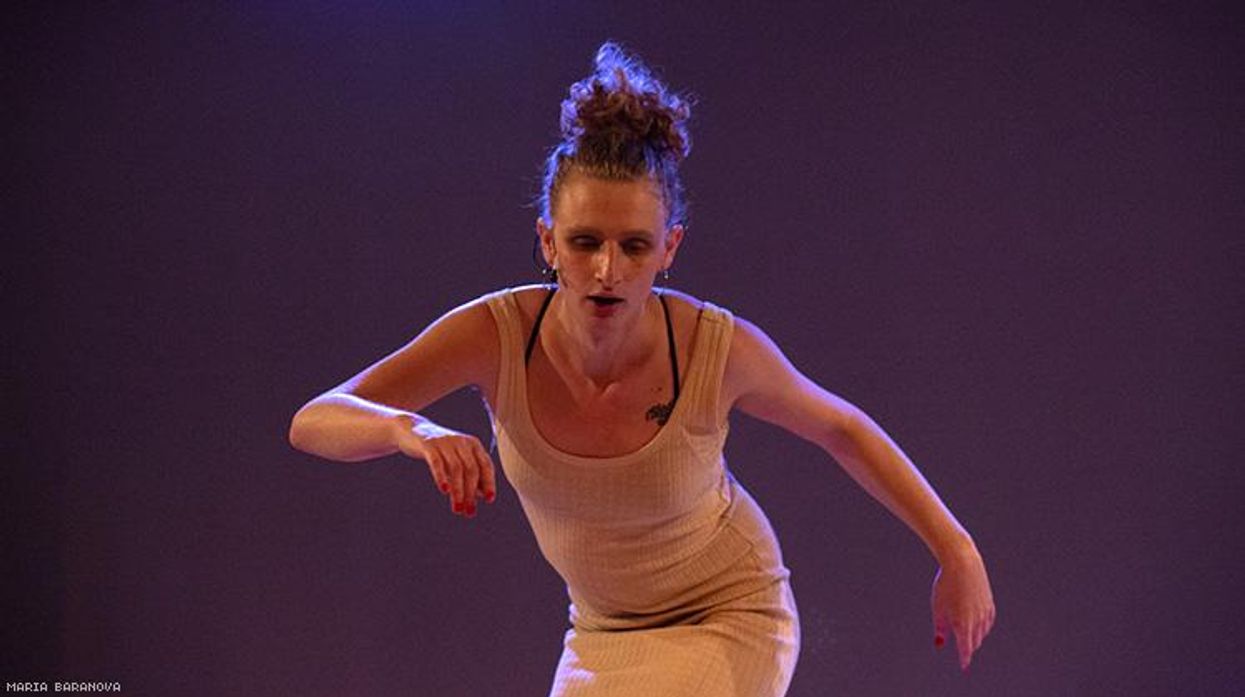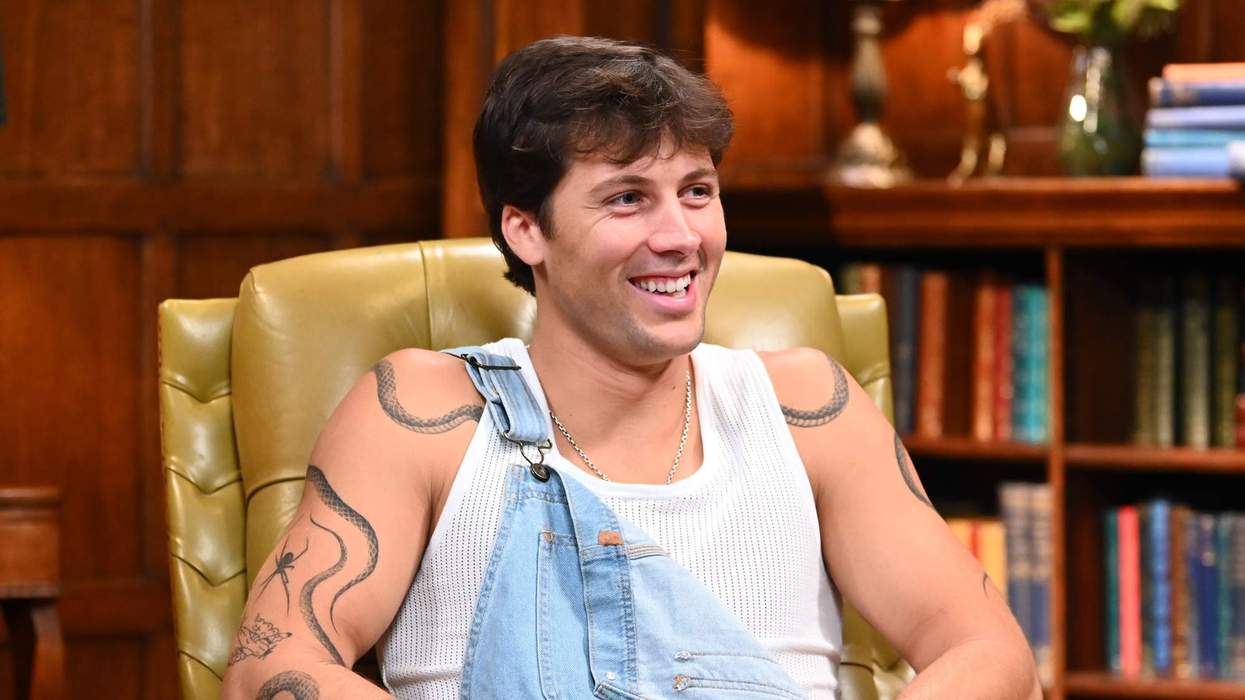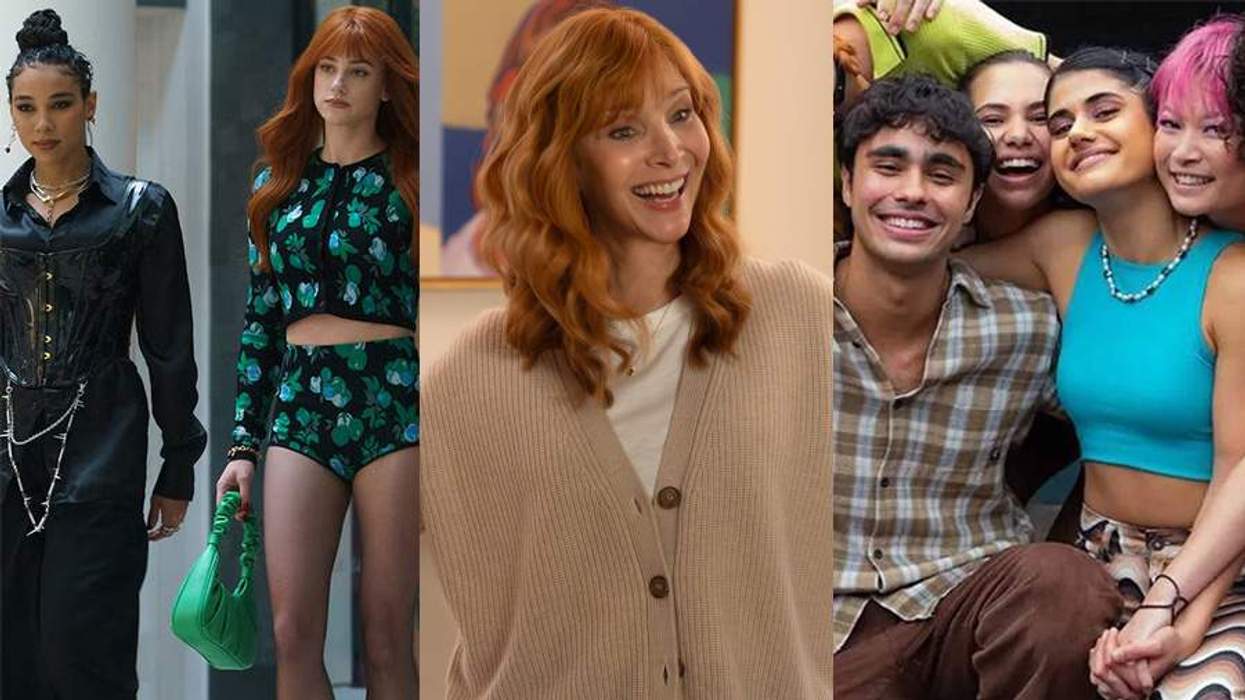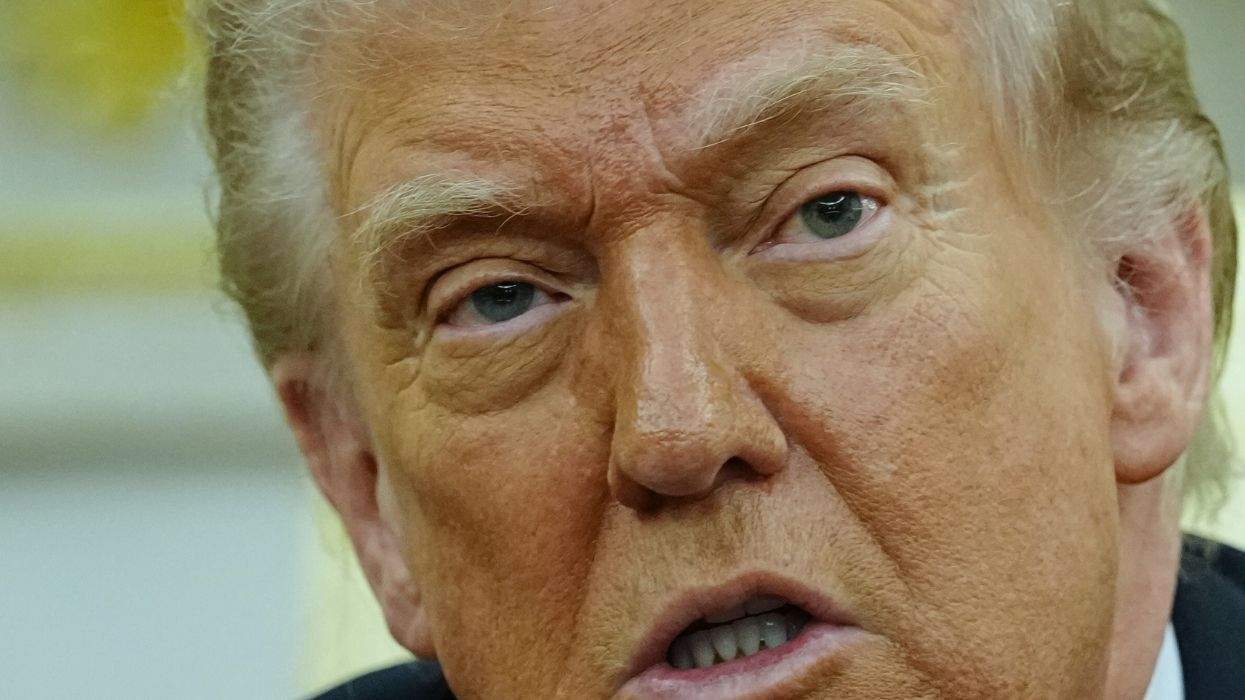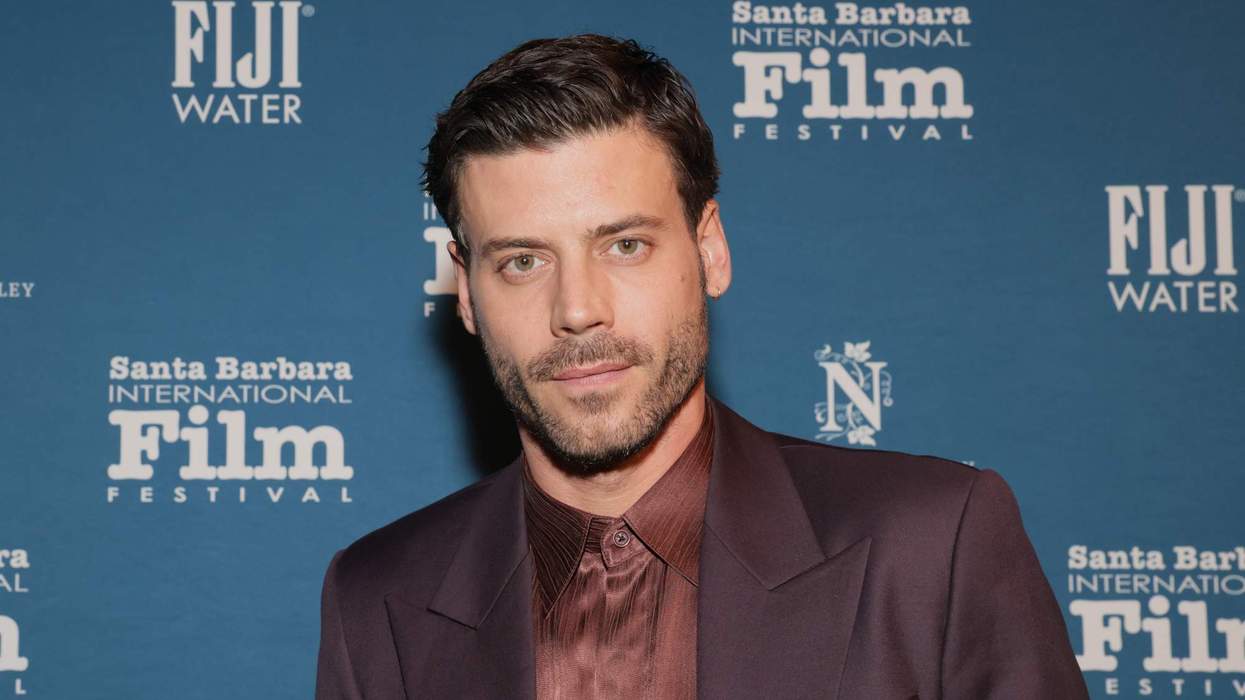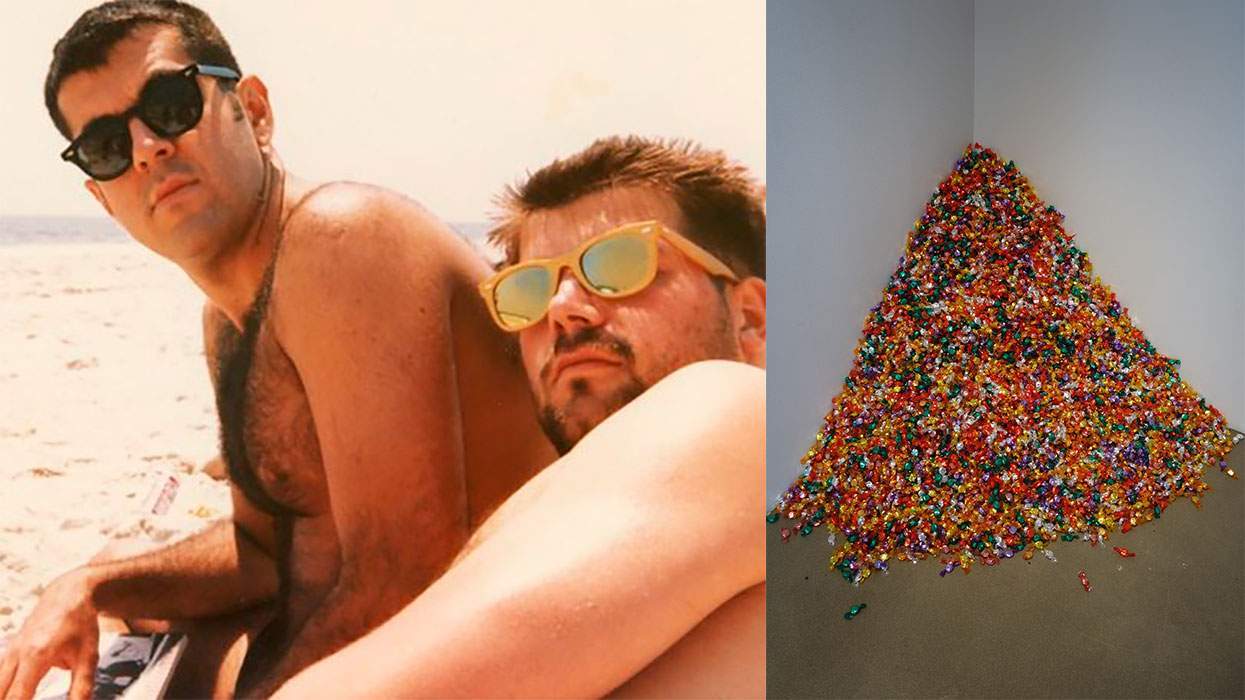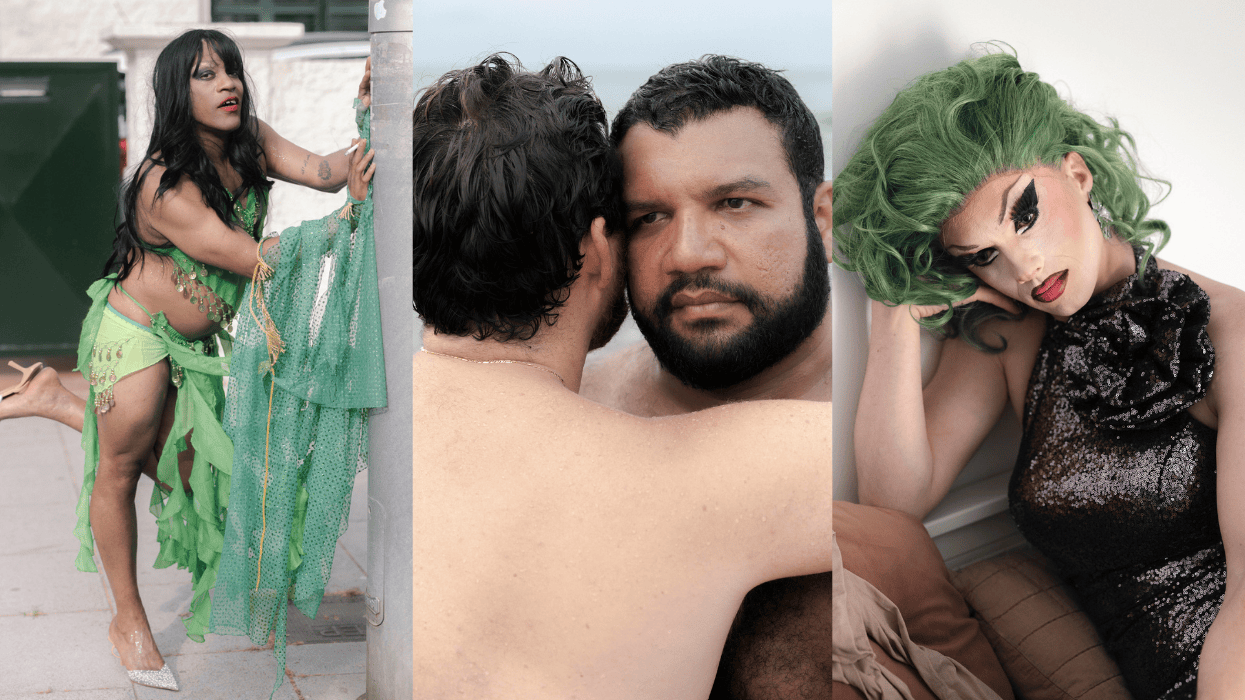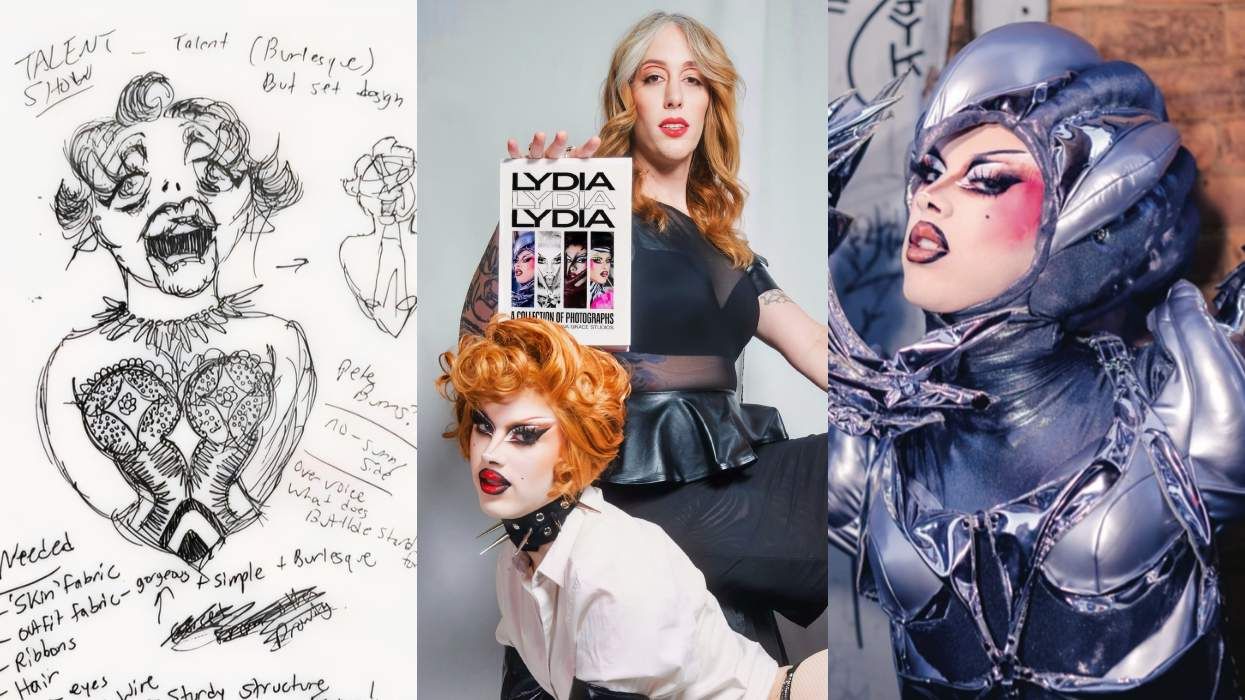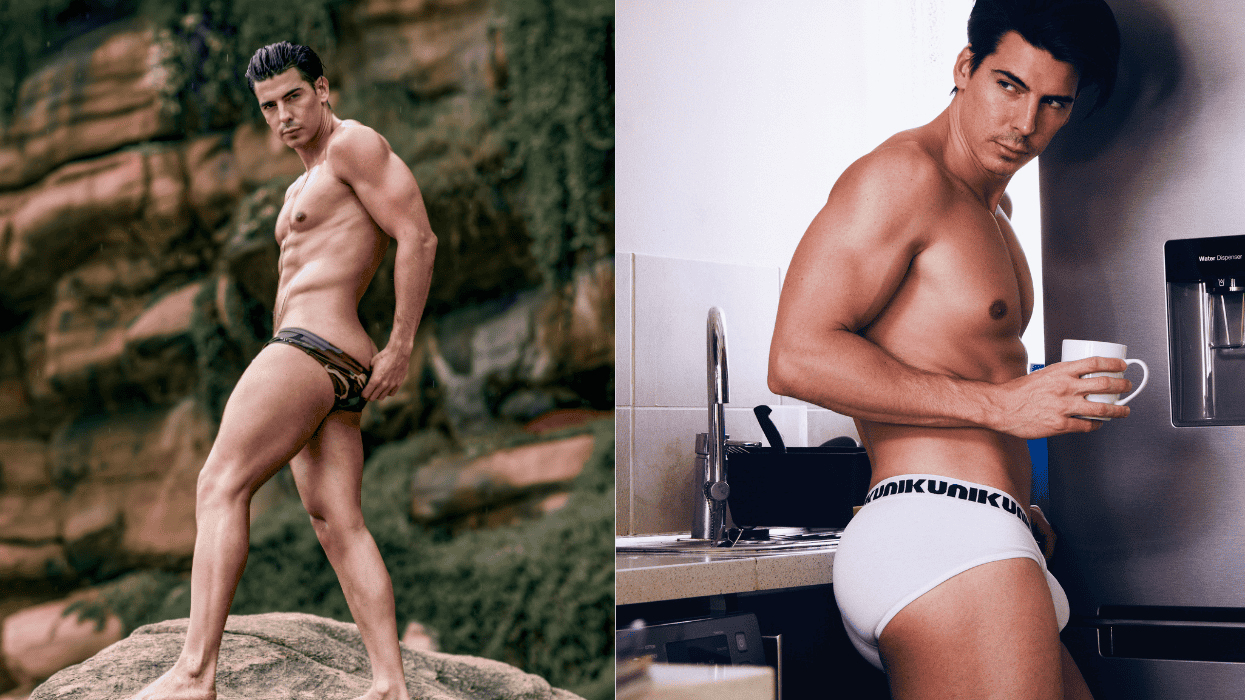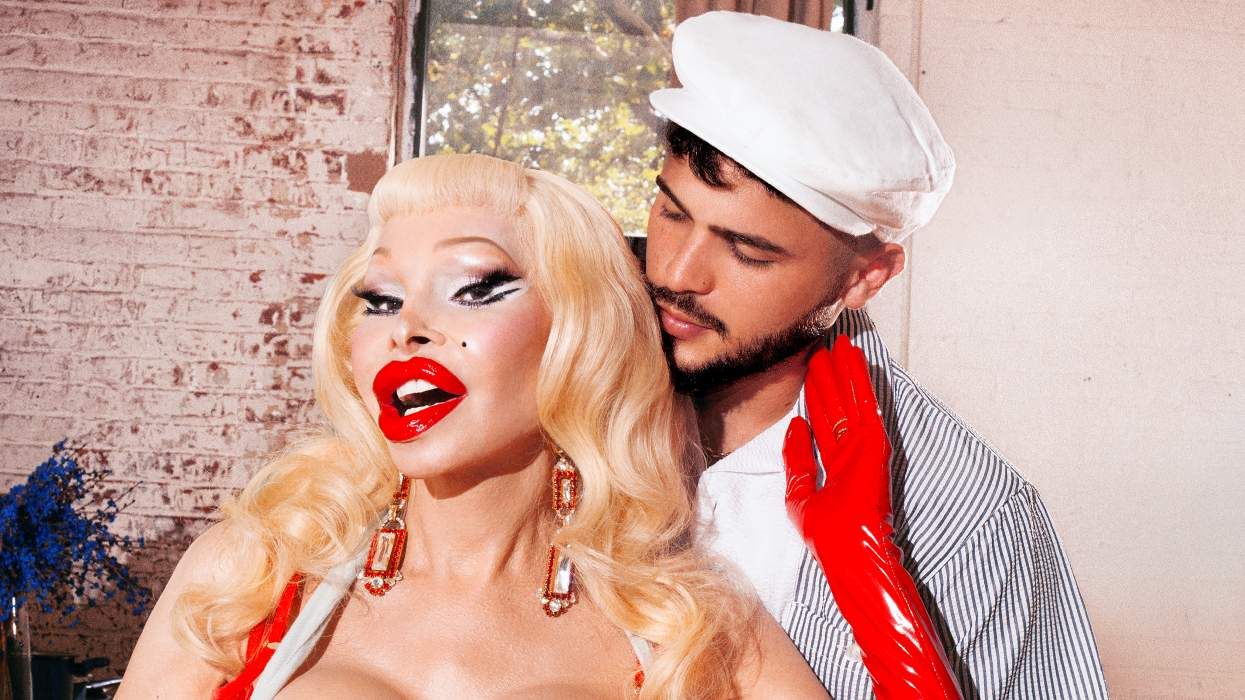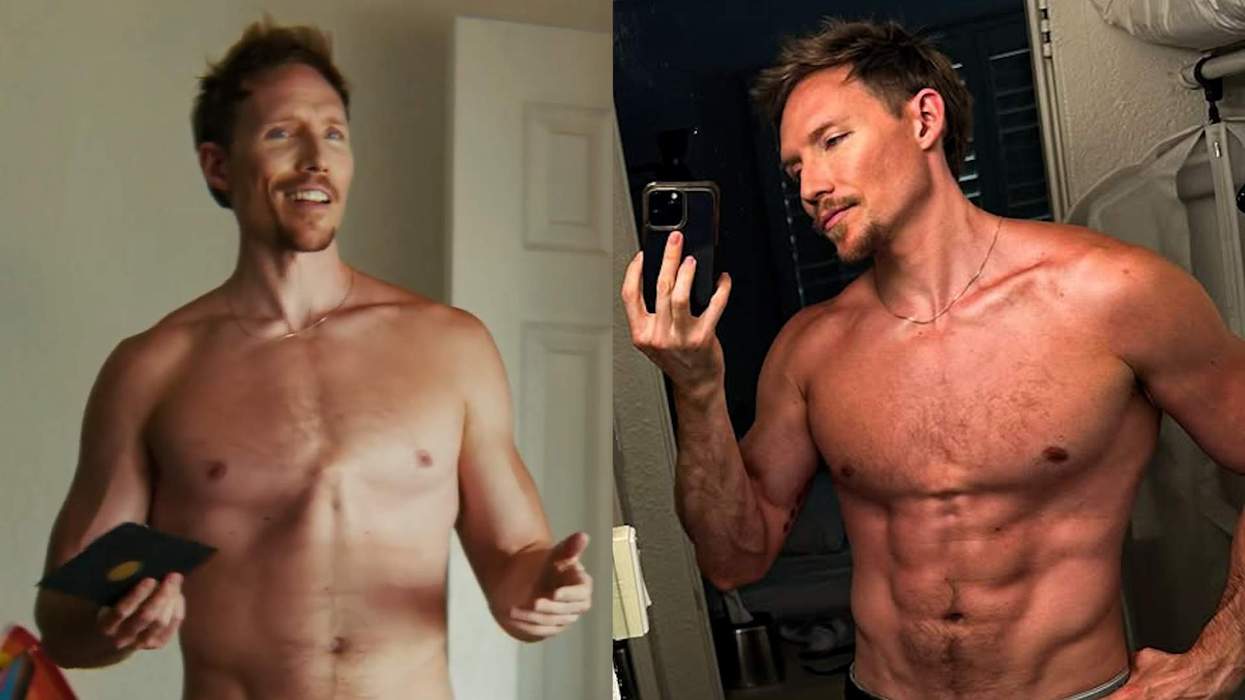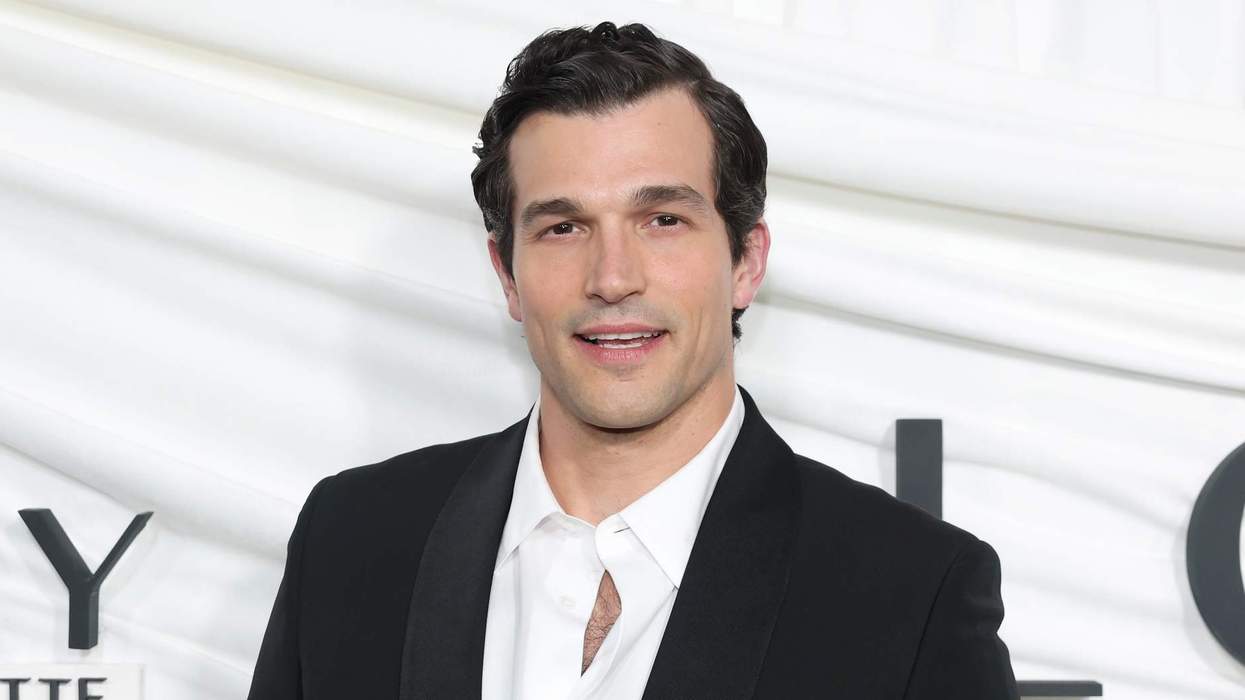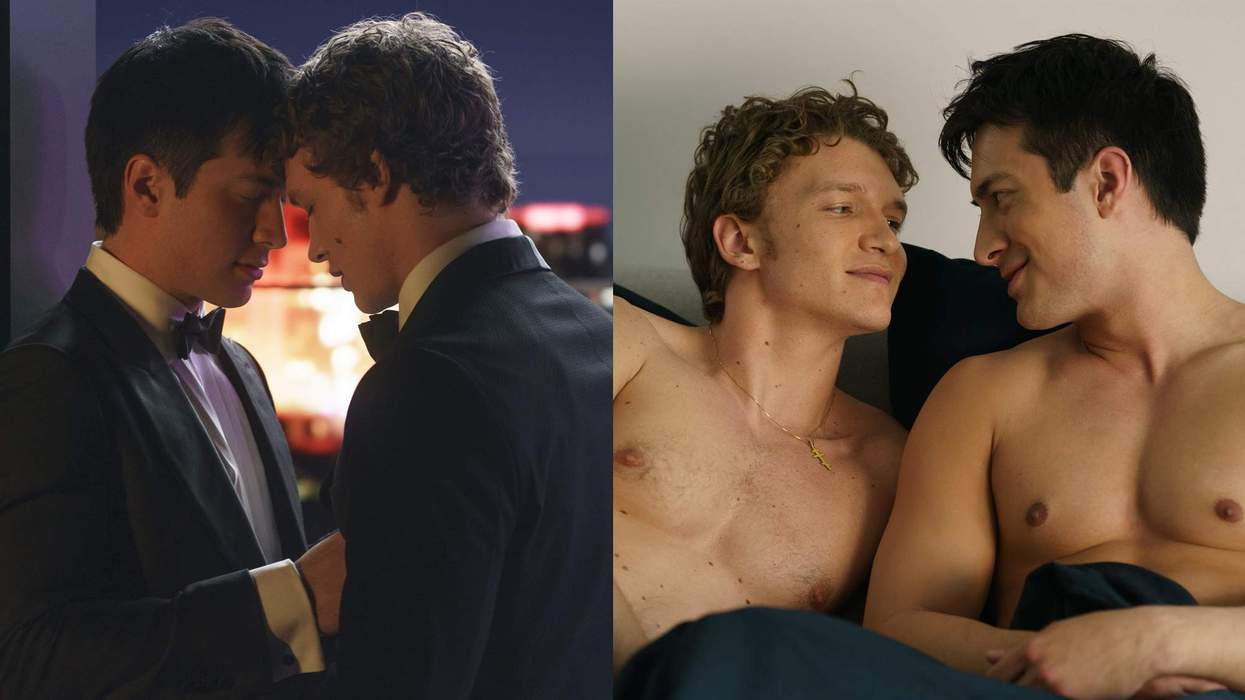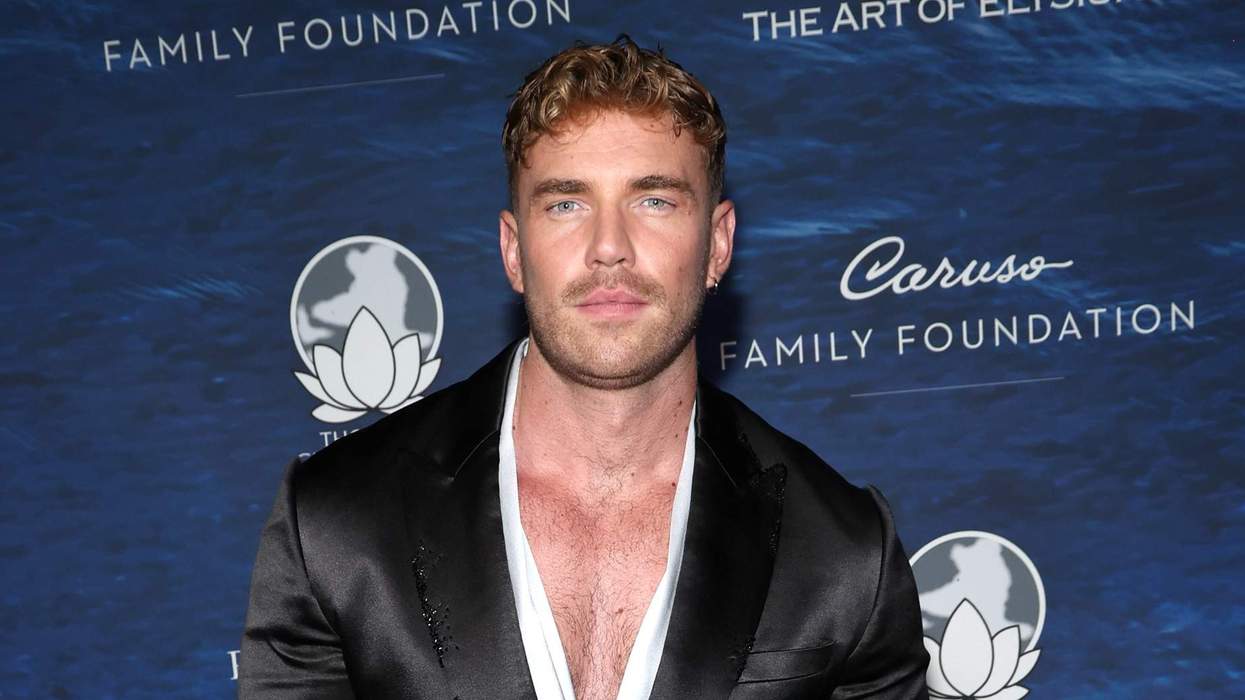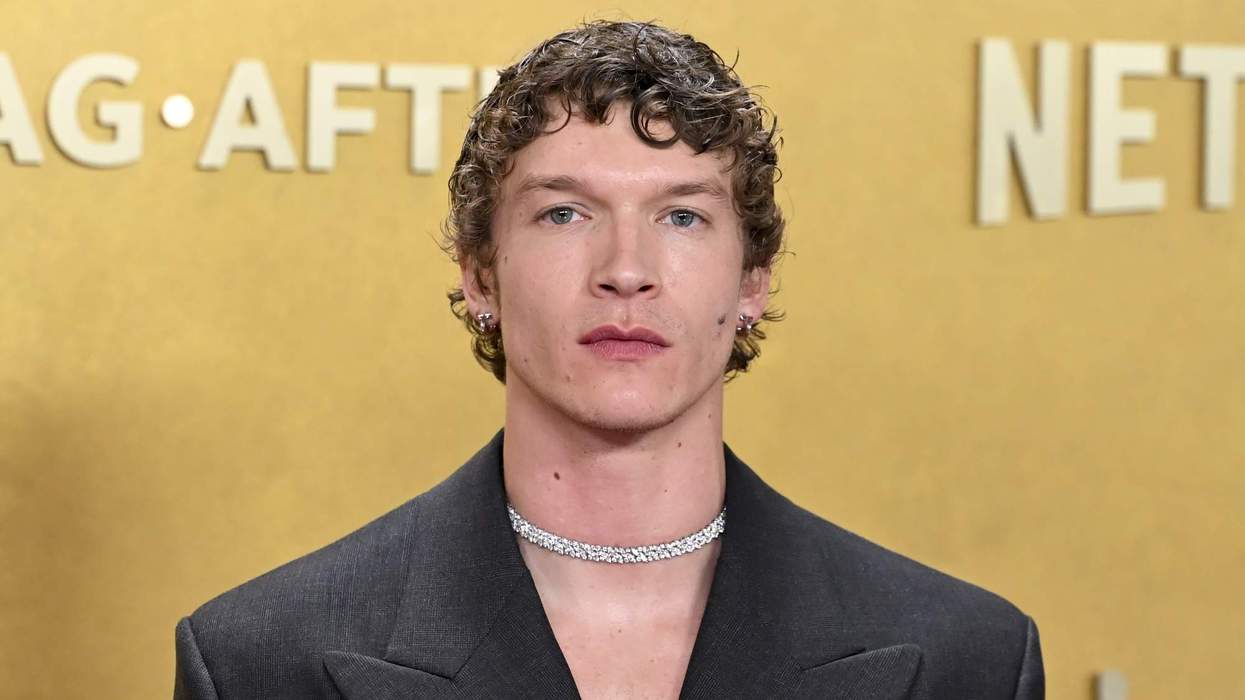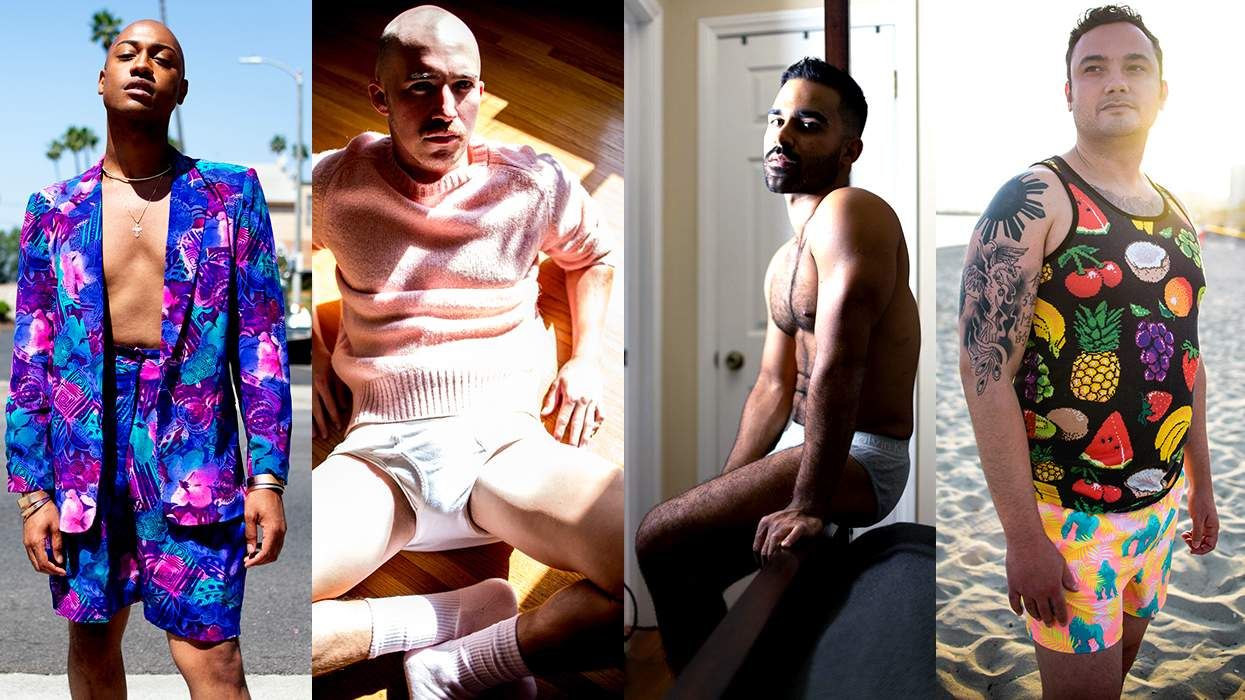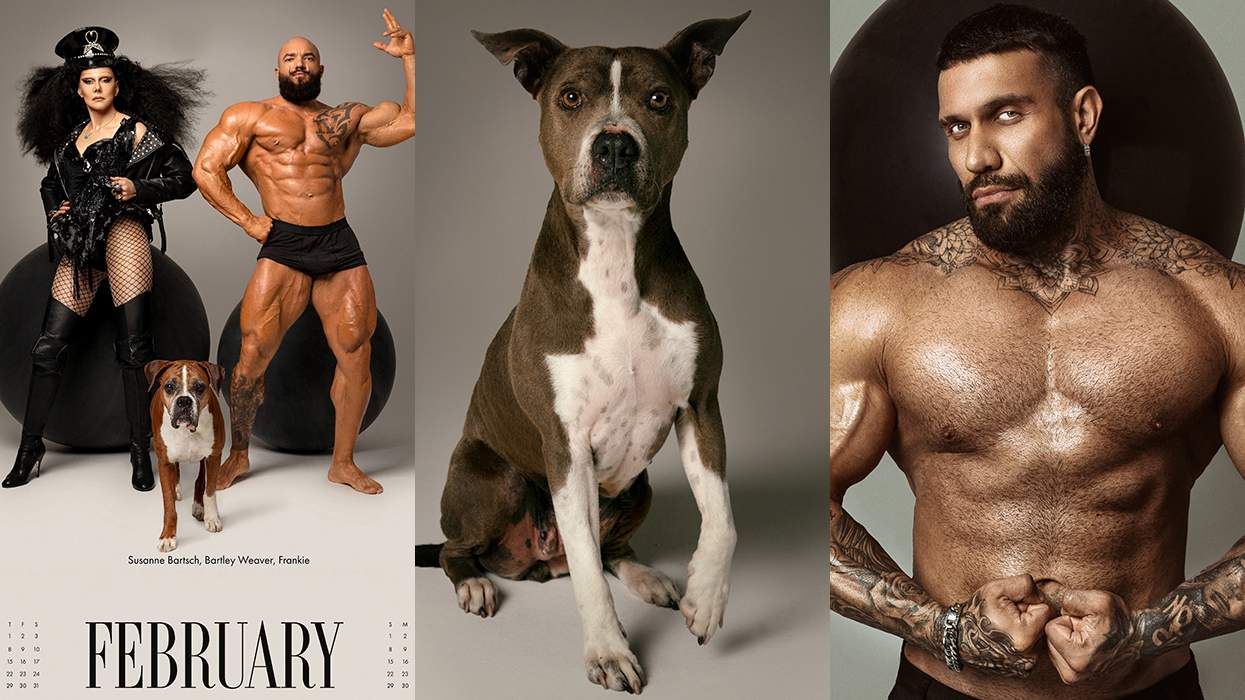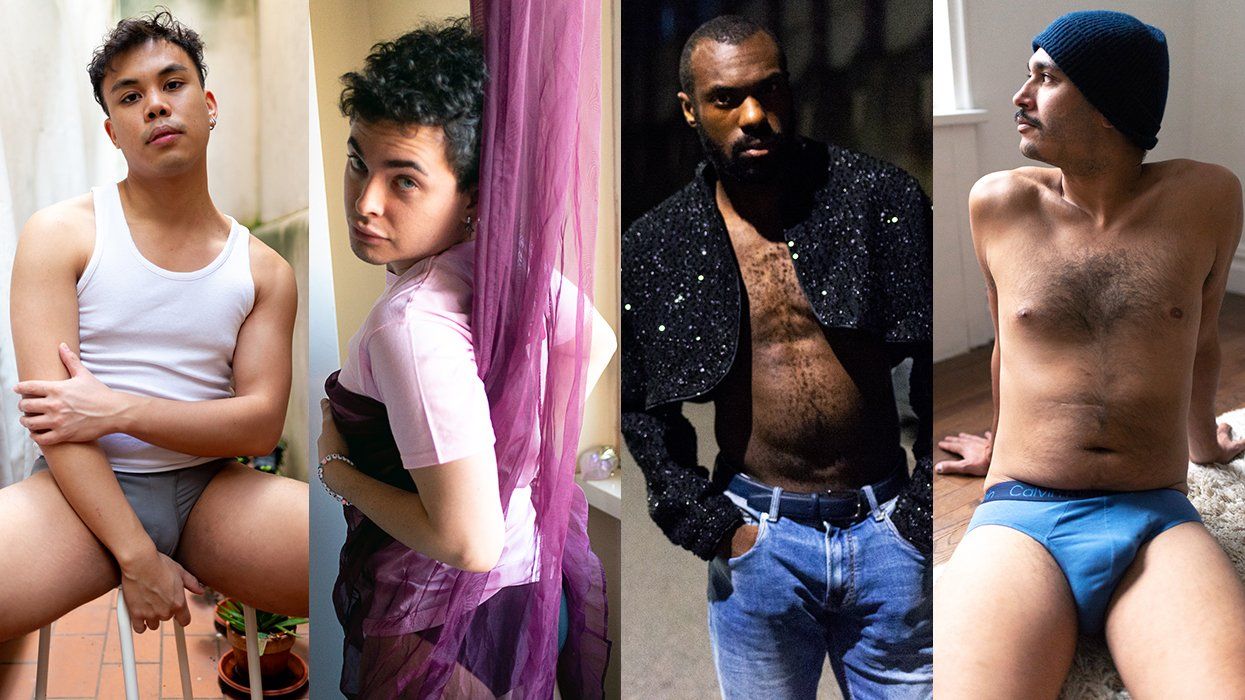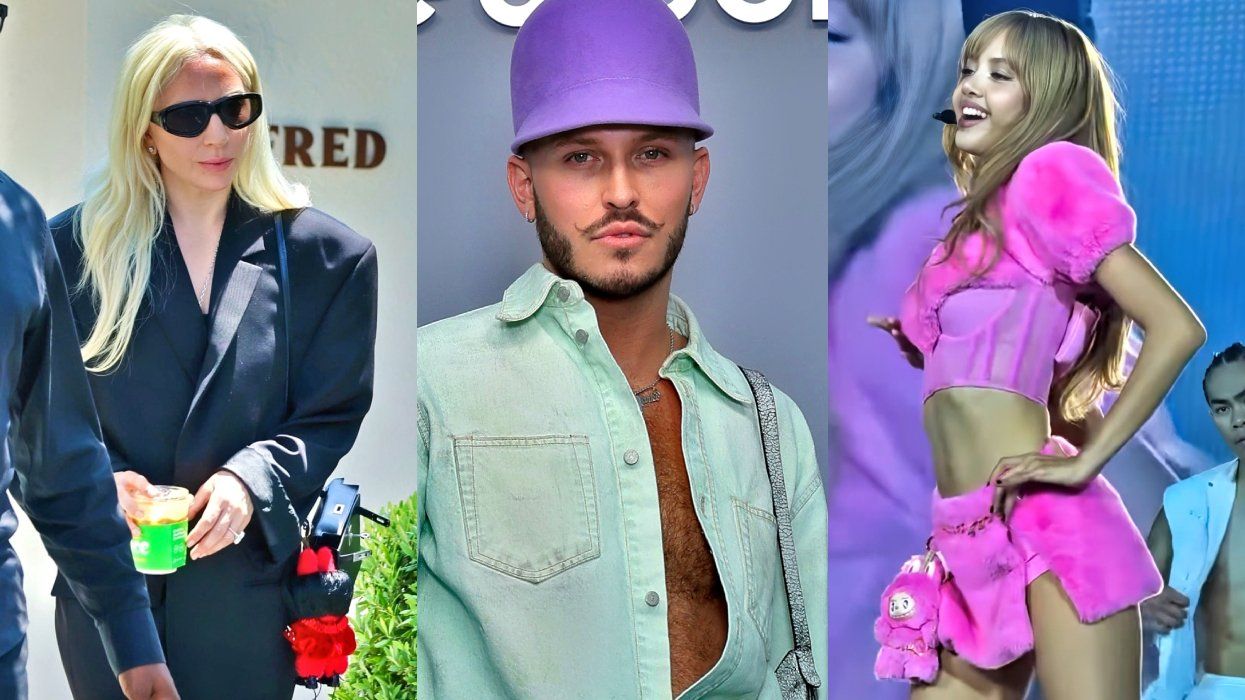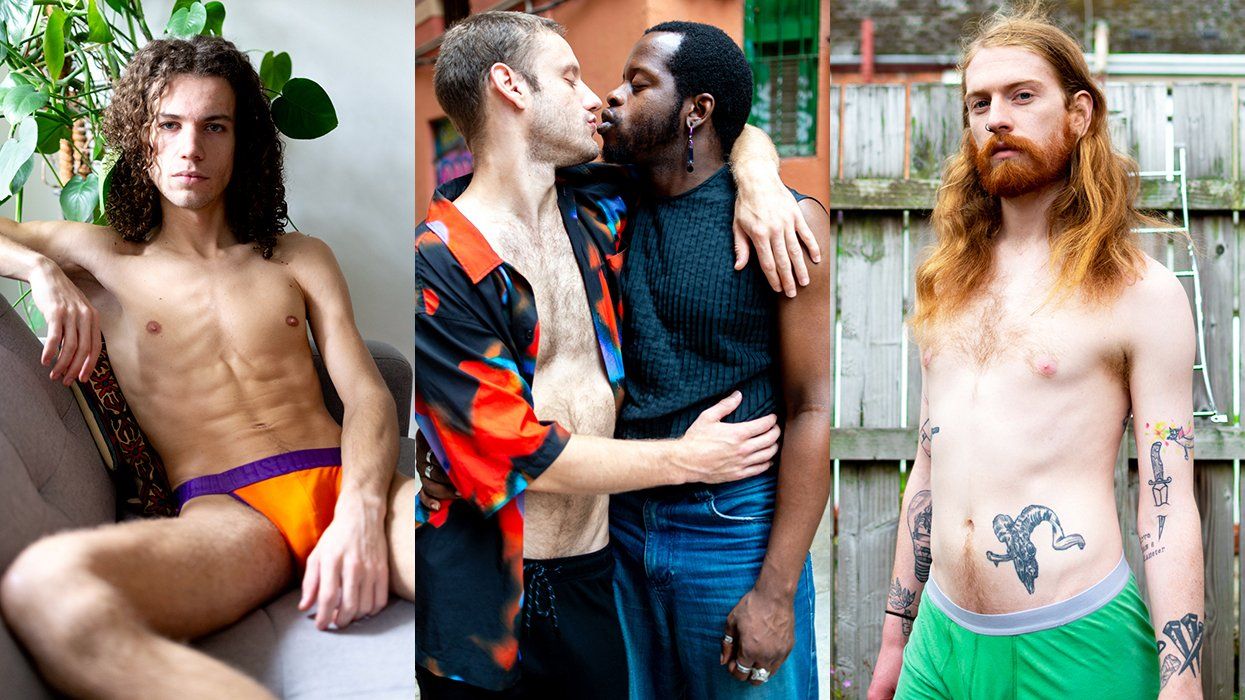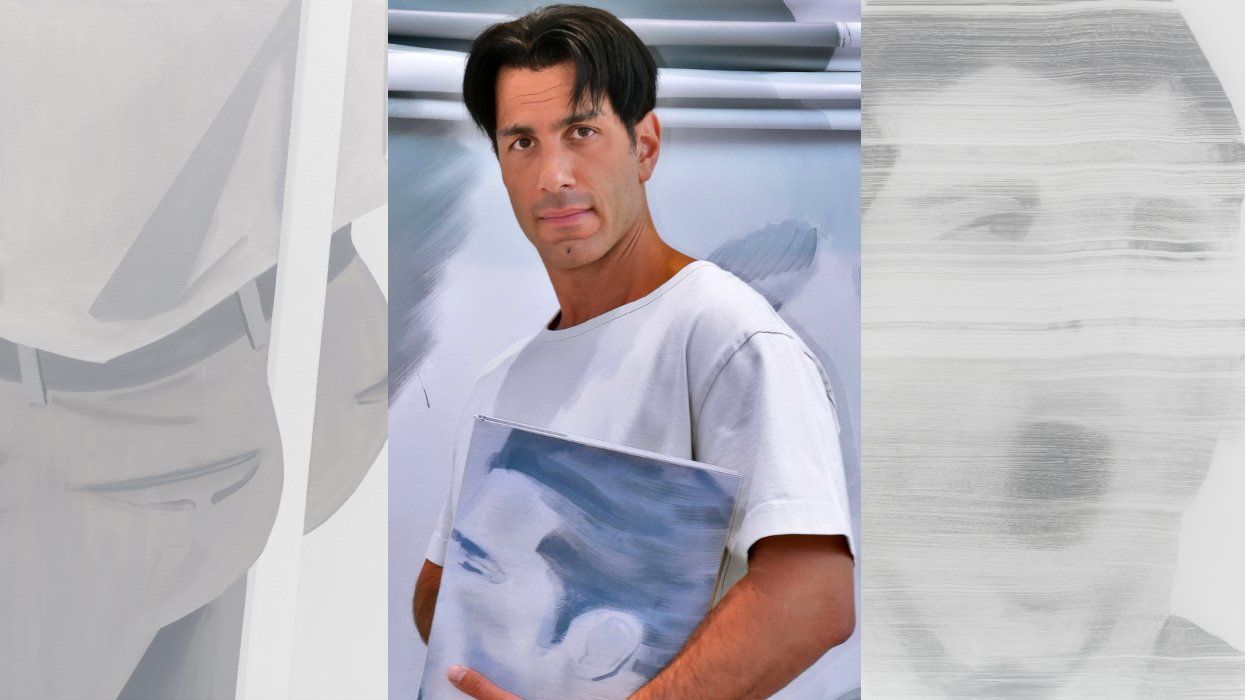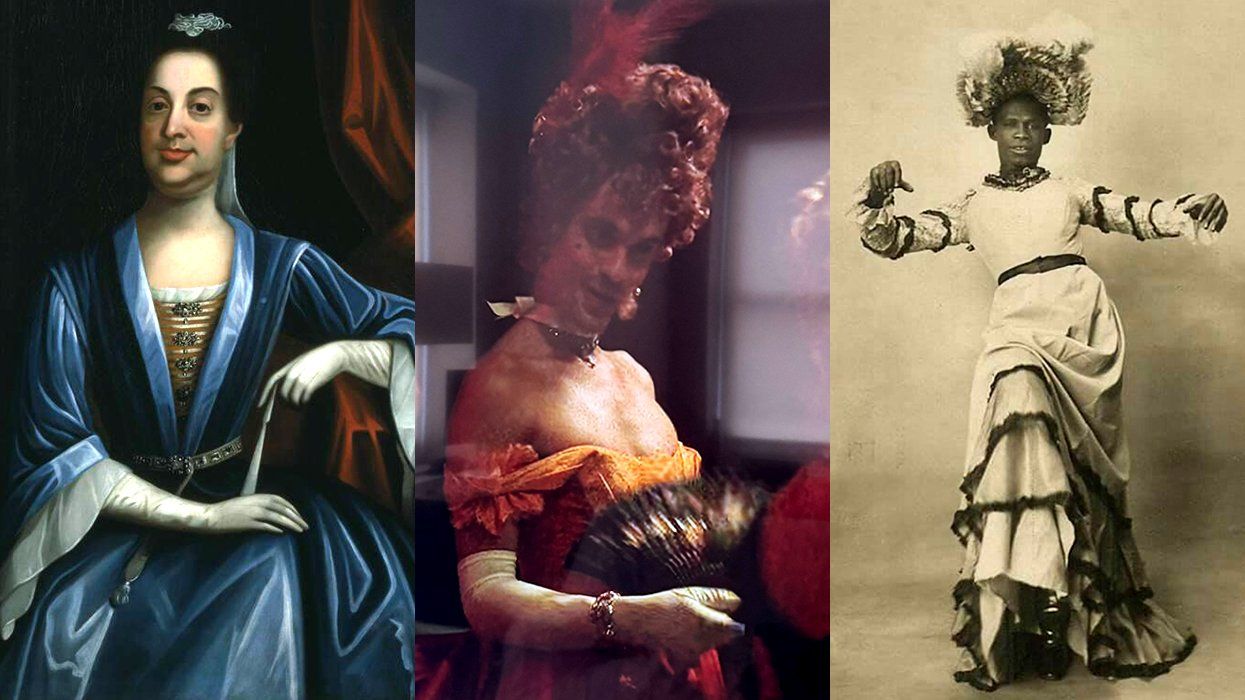Performance artist Ita Segev's work all centers around one subject: the intersection of her identity as both a trans woman and an anti-Zionist Israeli. Born and raised in Jerusalem, Segev was "indoctrinated into being an Israeli man," which meant joining the Israeli army at 18. Segev's exploration of her trans identiy happened in tandem with her Palestinian solidarity work, something she sees as a natural connection. "When you're from a society that raises boys to be soldiers, trans femininity is inherently a betrayal of the state," she says.
In her new show Knot In My Name, which opens October 3 at Gibney Dance, Segev will explore "the relationship between the place we're born into and the body we're born into and the stories we're told about that body and that place." Ahead of the show, Out spoke with the artist about how her transness led her to Palestinian solidarirty and what queer American Jews can do to unpack that indoctrination in our own lives.
What is it like to be someone who was born and raised in Israel and then confronting Palestinian oppression? And what does confronting that look like?
[Confronting that] seems like my job. Zionists in this country pretend like what they're doing is defending Israelis, like you're loyal to your people in Israel. But you're paying money for something that's happening on the other side of the world and you're not experiencing the outcome.
I grew up in Jerusalem in a time where things were really intense and I knew people who were implicated in that violence, and part of confronting that is understanding that that violence Israelis were facing was caused by Zionism as well, meaning Zionism makes people desperate enough to want to execute that violence.
You have no stake in it, and you're also not experiencing the consequences of it.
You have no stake in it, but you're creating it, which is a bizarre situation. Also, American Jews have this idea that if shit goes wrong here, there's this giant shelter that they can all move to.
Right. Whenever I attend a Passover seder and we say "next year in Israel," I always wonder...why? Why do we as American Jews feel like we're owed that?
Whew, there so many layers to that. If you think of other people who are oppressed, if you think of Black people in the United States, if shit goes down, there's not another passport they can get. They have to confront the shit that is going down. And Jewish survival, for a long time, was based on the ability to leave; we had to flee from here and run from here. But now, especially as white Jews, or Jews from European descent, it's time to confront the fact that we have integrated into society enough, wherever we are, to fight against our oppressors instead of thinking that oppressing other people on the other side of the world is somehow our solution for our safety.
And the even more bizarre situation is, the Prime Minister of Israel is best friends with the white supremacist that runs this country. Israel isn't protecting Jews from white supremacy; the state of Israel and white supremacists are BFFs. But there is such a seed of anxiety in American Jews about confronting that, so intensely, even more than in Israel. Talking to American Jews about Israel/Palestine sometimes feels more volatile than with people who are from there.
How has your understanding of your Jewish identity and your feelings about having been complicit in Palestinian oppression evolved through your transition?
The first thing that happened was that I realized I was a girl and for some bizarre reason started having these really intense dreams and flashbacks about my time as a soldier and the army and was like -- why is this happening at the same time? Because I had a studio space and an art practice, it became my obsession to figure out that connection. What I came to understand is that there's this process that I've been calling a "necessary heartbreak" of coming to terms with this gap, this giant lie that I was told about who I am and where I come from and how they're deeply interconnected.
It took my transition to really realize what I've been through, because only after I transitioned, I imagined myself the way I am now in some of the situations that I've been in and I was like, oh my god, if I was in combat training like I am right now, those soldiers would treat me -- maybe not to the same extent, but with some of the same cruelty that I saw them treat these people they saw as others.
When you transition it recontextualizes your whole life and gives you this new framework to look at everything you've experienced through.
I'm transitioning in this time where there's this hunger for autobiographical trans narratives. This thirst, tell us about your trauma. I was watching these beautiful Pose girls at the Emmys and instead of asking them about their work or their dresses, it was: "How does it feel to be here in regards to what you've been through?" All the time, sifting through our shit.
And on the other hand, there's this really intense censorship with talking about about Palestine. But a part of me thought, what happens if I frame my Palestinian solidarity as autobiography and use it as a Trojan Horse, where if they try to censor me and cancel the show, like they've done with other shows...I'm just telling my story as a trans woman. But really I'm telling my story with a specific intention, which is to move people here in this country towards this pretty simple realization which is being obscured, which is Palestinians are human beings, they deserve to be free, what's preventing that freedom inherently is Zionism, because it is a Jewish supremacist system from the get go.
How can queer American Jews confront this within themselves and unlearn the Zionist propoganda they may have grown up with, and what can they be doing to tangibly dismantle this oppressive system?
Most queer American Jews need to understand that Israel/Palestine is their problem, especially those who benefit from publicizing the intersection of being Jewish and queer but never talk about their complicity with Israel/Palestine. To me, that's doing a disservice to the truth and to their true position in the world. We need to see a mass organization of queer Jews making sure that Palestinian solidarity and Palestinian freedom and antizionist Jewish identiy is on the agenda in our workplace, in our social circles, in our family dinners, everywhere we go.
There are very direct ties between queer issues and Israel/Palestine issues. For trans folks, the majority of hormones that we take in the US are produced by a big Israeli company that has accumulated wealth on Palestinian people's expense. So literally the 'mones we take are part of that colonization. Obviously the state of Israel pays a lot of money to present itself as a queer-friendly haven, what's known as pinkwashing, so any state propoganda that as a queer person you see in your space, and festival you're invited to in Israel, every time you go to a march and you see and Israeli flag, unpack that shit and refuse to accept it as part of your queer paardigm.
I am a big advocate for BDS, which is the Boycott, Divestment, and Sanctions Movement, that is inspired by apatheid South Africa and the idea that the main way to stop Israel from violating Palestinian human rights is by closing the money faucet that is mainly coming from [the US]. Queer American Jews who have less to lose by siding with this still very stigmatized poltics need to be on the frontlines of supporting BDS, endorsing BDS, divesting their money from the state of Israel, investing it in queer Palestinian grassroot organizing.
And then emotionally, queer people know what it's like to pay a price that is worth it when you tell an unpopular truth. That inherently makes us antizionist doulas, because if we're dealing with our cishet families who are afraid of that confrontation and loss of privilege, then we can be an implication that that is worth it. They've been through this struggle with us, if they haven't shunned us from their family. We know what it's like to have really difficult conversations.
What's more Jewish than having a really difficult conversation that you know there's something worth it on the other side? That's what all Jewish holidays are about. Have that conversation, start with that.
Knot In My Name opens October 3 at The Theater at Gibney. Get tickets here.
RELATED | 9 Gorgeous Queers Tell Us What Beauty Means to Them


